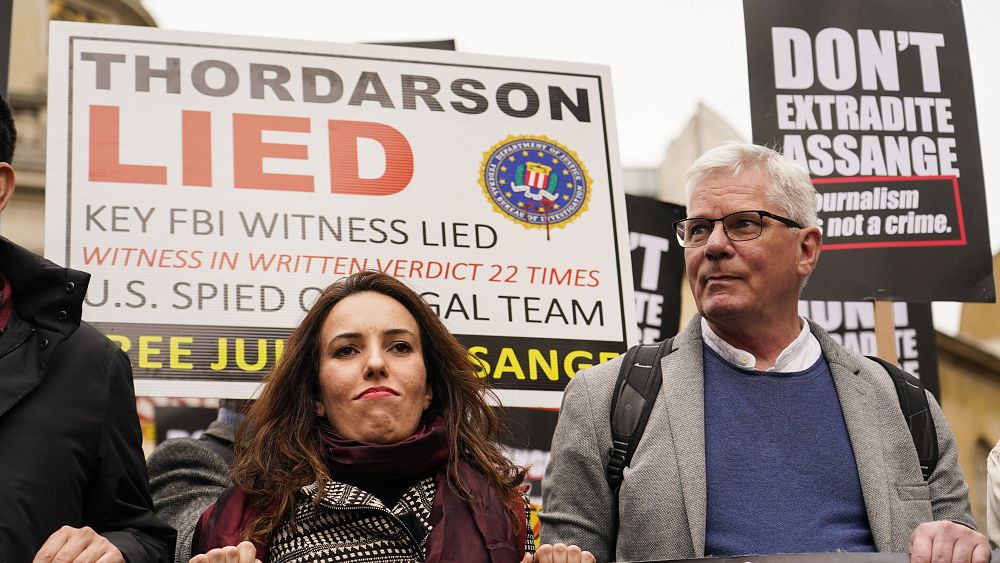
The United States will today (Wednesday) begin an appeal to extradite WikiLeaks founder Julian Assange to face espionage charges on American soil.
It comes after a British judge rejected a request earlier this year.
The US government said it was “extremely disappointed” by UK District Judge Vanessa Baraitser’s January decision, which was made on the grounds of Assange’s mental health and the likelihood of him taking his own life in a super-security prison.
Washington will challenge that ruling at a two-day hearing from Wednesday, arguing that the judge “didn’t appreciate the weight” of expert evidence that said he was not at risk of suicide.
Instead, it claimed the judge was “misled” by over-relying on the testimony of Assange’s psychiatric expert Michael Kopelman.
Assange, 50, was arrested in Britain in 2019 for skipping bail after spending seven years inside the Ecuadorian embassy in London to evade extradition to Sweden to face allegations of sexual assault, which were later dropped.
Despite his extradition being blocked, Assange has been refused bail pending the outcome of the appeal over concerns he would escape. He is being held at London’s high-security Belmarsh Prison.
Lawyers representing the US are hoping to extradite Australian-born Assange to face 17 charges of espionage and one of computer misuse in relation to publishing secret military documents from the wars in Afghanistan and Iraq.
If convicted in the US, he faces a maximum sentence of 175 years in jail.
Assange ‘looking very unwell’
Assange’s partner Stella Moris, a former member of his legal team who is the mother of his two children, is leading a vocal campaign to support the Wikileaks founder.
Moris told reporters that she had visited Assange in prison on Saturday and was “taken aback” by how thin he looked.
“He was looking very unwell,” she said. “The point was that Julian would not survive extradition, that was the conclusion of the judge.”
At the press conference, Moris referred to a recent media investigation that found that the CIA, under President Trump’s administration, had “prepared sketches” on how to murder or kidnap Assange from the embassy.
“This is a game-changer going into the appeal because it shows the true nature, the true origins, the true criminality of the US actions against Julian,” Moris told reporters. “The big picture here is can the UK really extradite a person to the country that was plotting to murder him?”
‘Free press at risk’
Assange was indicted for violating the US espionage act in leaking the US files, and for hacking, based on the alleged assistance he provided former military intelligence officer Chelsea Manning in obtaining the documents from secure military computer systems.
But the US case raised free speech issues, with Assange and his defenders maintaining that WikiLeaks enjoys the rights of any other media to publish secret materials in the public interest.
Rebecca Vincent, of Reporters Without Borders (RSF), said he had been “targeted for his contributions to public-interest reporting”.
Vincent told reporters that US President Joe Biden had missed an opportunity “to distance himself from his predecessors” on the case and urged him to drop it.
The WikiLeaks founder sought, but failed, to obtain a pardon from Trump, whose 2016 election campaign benefited from WikiLeaks’ release of materials that damaged his Democratic opponent, Hillary Clinton.
If the US appeal is successful, the case will be sent back to the lower court for a new decision to be taken.
But even then, the legal battle may not be over, with the possibility of a further, final appeal to the UK’s Supreme Court.